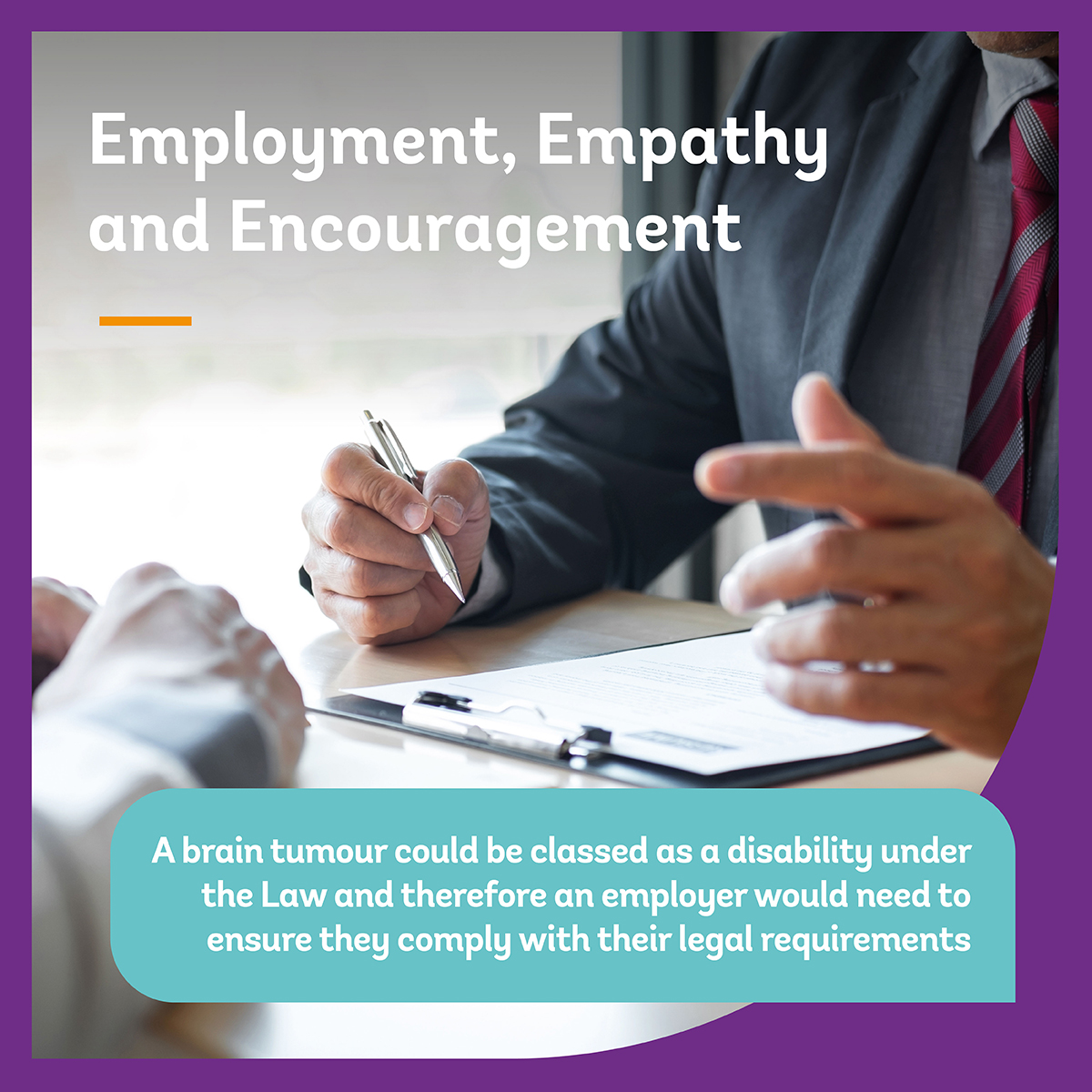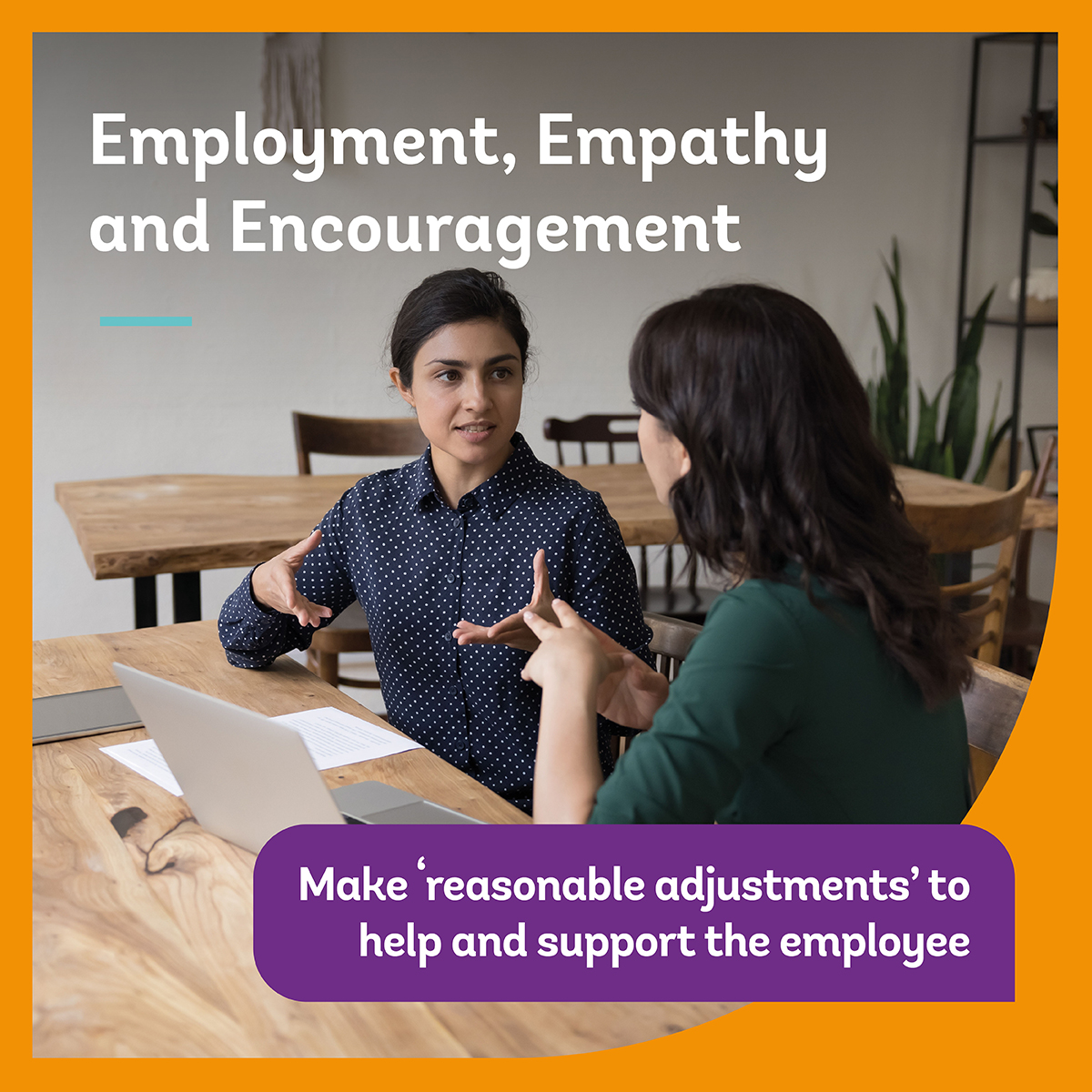Employment, Empathy and Encouragement
Make sure you have someone in the company who has researched, and understands, what a brain tumour diagnosis means. For a larger organisation, this could be someone in your HR team or in a smaller firm this may be the immediate manager. There is a wealth of information available online to help and The Brain Tumour Charity is a great starting point!

Be Prepared To Be Flexible!
There are so many types of brain tumour with different treatments and side effects. Make sure the support is personalised to the individual and work with them to draw up a support plan. You should consult with the employee at all stages during the process, should a change in role or responsibilities be required then ensure this has been discussed and agreed with the employee. It may be that they never return to their previous role so it is important to look at short, medium and long-term options.
How you speak with your employee will depend on the relationship you have with them, but it should be an ongoing conversation, not a one-off. Whatever support you do provide needs to be agreed by both parties. For some people this may be very little; time off to attend appointments. For others this may mean periods in hospital and lengthy recovery time and therefore they may have to work reduced hours, alter the scope of their responsibilities, or be unable to work at all for a period of time.


Be aware of your legal responsibilities. Under the Discrimination (Disability) (Jersey) Regulations 2018, disability is defined under the law as a protected characteristic. “A person has the protected characteristic if the person has one or more long-term physical, mental, intellectual or sensory impairments which can adversely affect a person’s ability to engage or participate in any activity in respect of which an act of discrimination is prohibited under this Law.”
The challenge is that there is no fixed definition of what a “reasonable adjustment” is – it depends on how practical it is; how much benefit the employee will receive; the impact and possible disruption to your business activities; and cost. What would be considered reasonable will be determined by the side effects the employee is experiencing, whether physical, psychological or cognitive. Possible list of “reasonable adjustments”:
- Time off for medical appointments and treatment
- Changing performance targets or job role
- Working from home
- Help with transport to work
- A support worker in the workplace
- Special aids and equipment
- A private area to take medications
- An occupational health assessment (if provided) to create a return-to-work plan

